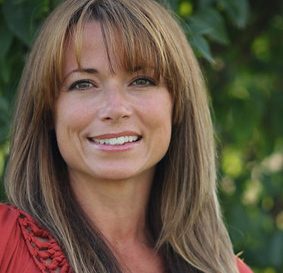
The conference that Evans did attend was also attended by women who were publishers, physicians, theologians, students, social activists, in the military and in business. They also spoke a couple of times thereafter. Evans did not take her up on her offer but attended part of a conference that Kassian spoke at. Kassian, who has spoken to tens of thousands of women about biblical womanhood and helped coin the term complementarian, said when she first heard of Evans' project early on, she contacted her and made herself available to help her. And which complementarian in her right mind would even remotely assert that 'the only sphere in which a woman can truly bring glory to God is in the home,'" she said in her review.Īs she read Evans' book further, she found that the author was referring to women who are on the fringe or are extremist and not anyone who is representative of the modern complementarian movement. "I found myself curious about which 'proponent of the modern biblical womanhood movement' used 'strong, unequivocal language' about homemaking being woman's highest calling. But along with the positive reviews was pushback from some complementarians.Ī major problem Kassian came across in the highly publicized book is Evans identifying homemaking as a woman's highest calling.

She grows out her hair, makes her own clothes, covers her head, obeys her husband, gets up before dawn, and abstains from gossip, among other things.Įvans has been overwhelmed by the response to her book since its release this year. In A Year of Biblical Womanhood, Evans chronicles her experience in following the Bible's instructions for women as literally as possible for a year. Kassian said she has never even heard of that piece of writing. "Seriously? 'The Hidden Art of Homemaking?!!' I just about fell off my chair." "'Evangelical complementarianism,' claims Rachel, ' a movement that began as a reaction to second-wave feminism and found some of its first expressions in the writings of Edith Schaeffer (The Hidden Art of Homemaking, 1971) and Elisabeth Elliot (Let Me Be a Woman, 1976).' Rachel goes on to explain that complementarianism rests on the 'uncompromising conviction the virtuous woman serves primarily from the home as a submissive wife, diligent homemaker, and loving mother,'" Kassian wrote.

She first took issue with the way Evans defined "evangelical complementarianism," and said she had her first and best laugh of the whole book when she read the definition.

Mary Kassian, a council member on The Council on Biblical Manhood and Womanhood, released her review over the weekend and said she's mostly disappointed in how Evans "caricaturized" what complementarians believe.

The reviews for Rachel Held Evans' A Year of Biblical Womanhood keep coming and criticism is largely coming from complementarians.


 0 kommentar(er)
0 kommentar(er)
